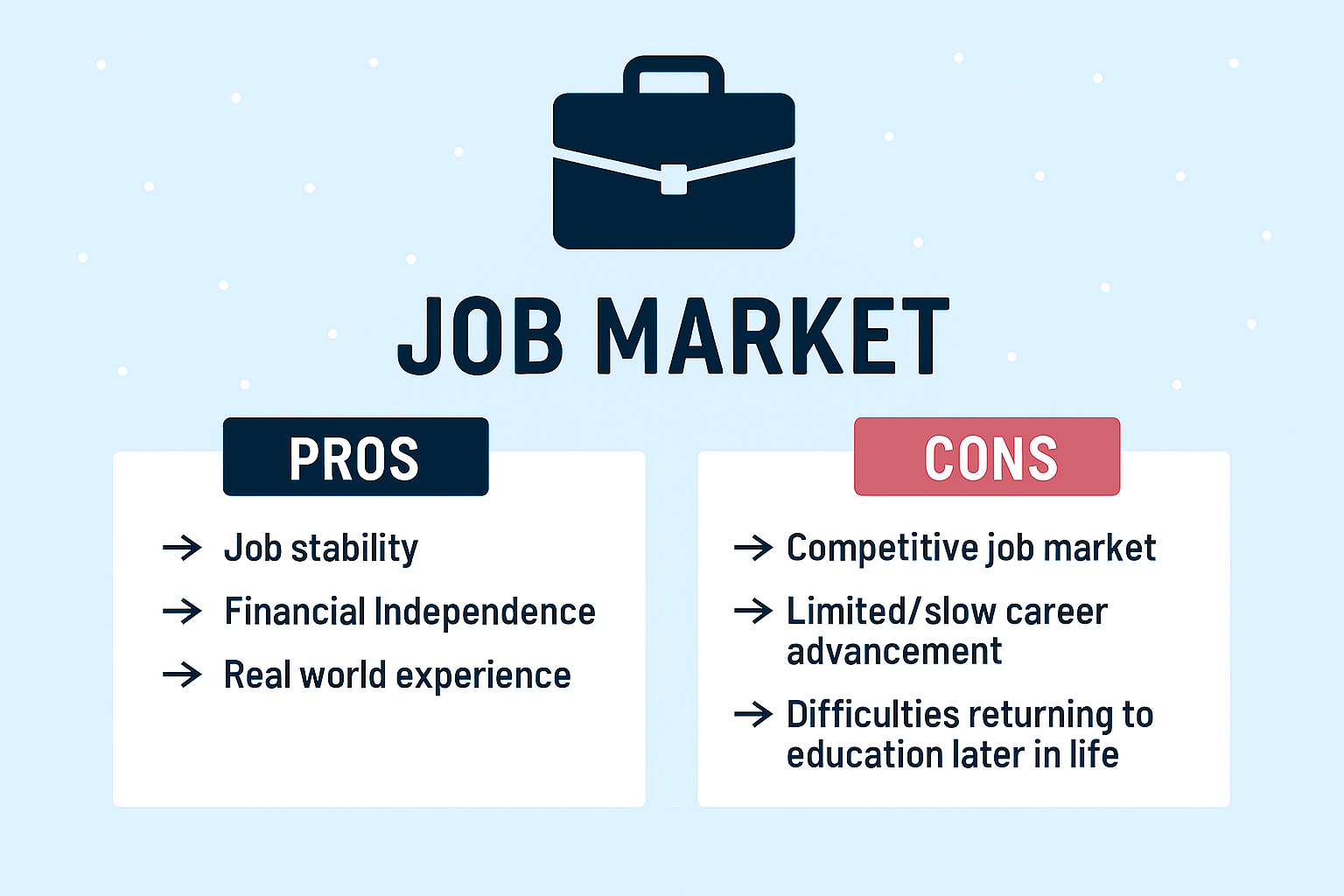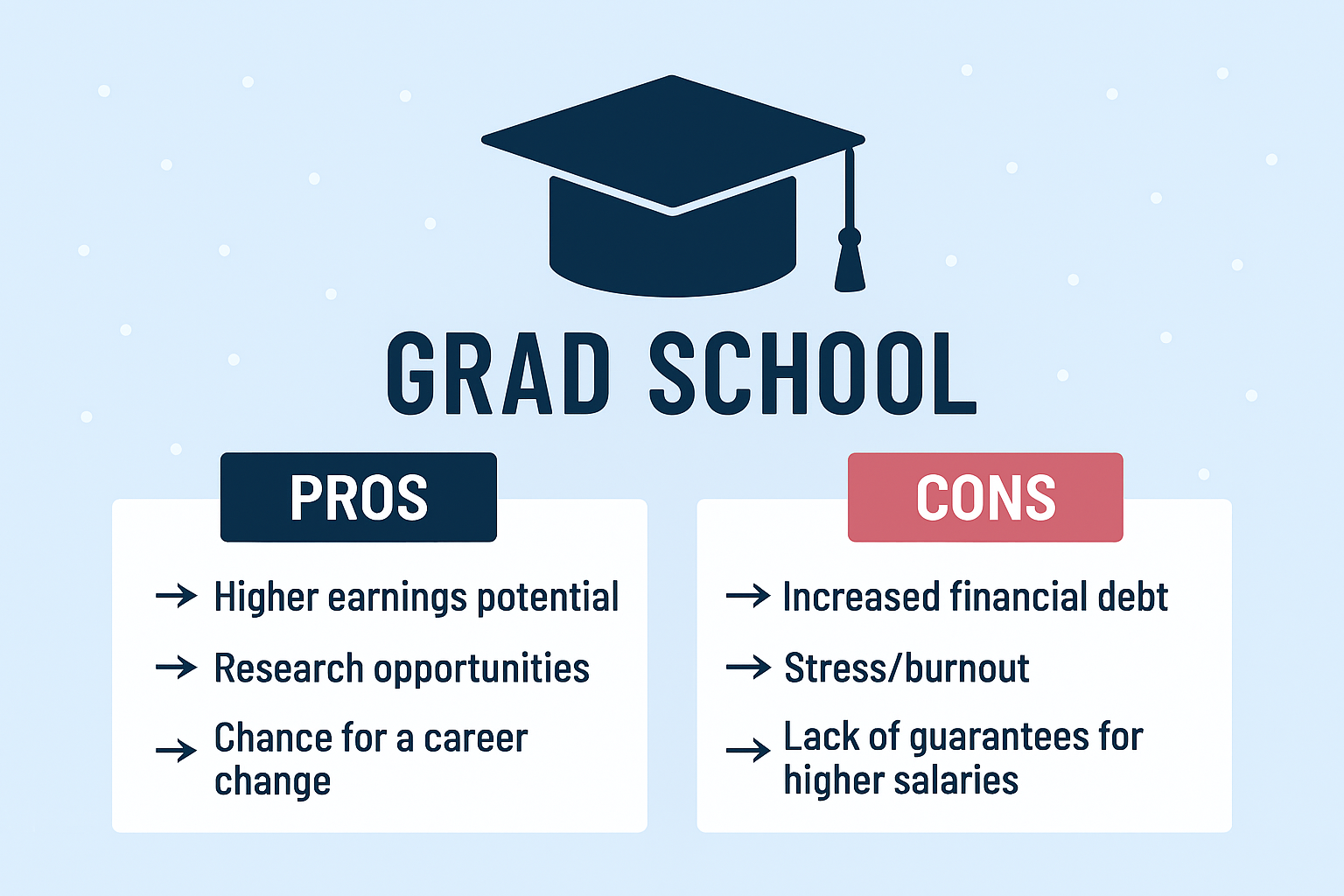Congratulations! You have just completed your undergraduate degree! But, now what? Do you plan on jumping right into the job market, or are you toying with the idea of attending grad school?
This blog will dive deep into the pros and cons of attending a graduate program. Let it be known that neither path is right or wrong. What’s important is finding the best fit for you!
What is Grad School?
First, it is important to understand what graduate school is.
Graduate school is a higher education institution that you can attend after obtaining a bachelor’s degree. These institutions provide students with specialized expertise and allow them to complete advanced research.
The most common degree types obtained in graduate school are a master’s degree and a doctoral degree. A master’s program will typically take two years to complete and offer in-depth training in a specialized area. A doctoral degree, on the other hand, is the highest academic degree. This degree, on average, takes about 4-8 years for students to complete, requires more advanced research, and often a dissertation or thesis. You do not have to earn a master’s degree prior to earning a doctorate.
How to Decide Which Path to Take
Choosing between grad school and jumping straight into the job market isn’t easy — both paths have their benefits and challenges. To help you weigh your options, here’s a quick pros and cons list based on information from Barton Careers.


Hear From the Digital Corps
Here at the Digital Corps, we have many staff members that have attended or are currently attending grad school, as well as graduate assistants who are working through their master’s degrees.
Project Management Team Graduate Assistant (GA), Josh Pavlovsky, recently completed his undergraduate degree at Ball State and is currently enrolled in a graduate program.

“Grad school was something I toyed around with for months before finalizing my decision. After graduating in May 2025, I quickly realized in the months leading up that the job market was in a really tough spot,” Pavlovsky said. “After speaking with multiple alumni from my grad program that I decided to pursue. Earning my master’s will get me the leverage I need to stand out to employers and recruiters.”
Although Josh chose to get started on his post grad program right after finishing his undergrad, that is not the only option.
After taking a seven-year hiatus from school to experience the “real world,” Design Team Lead, Riley Paulsen, decided to attend grad school. During this time, he was both a full time Ball State employee and a part time student.

“Grad school absolutely kicked my butt at the beginning,” Paulsen said. “Someone thinking about grad school needs to weigh the benefit of what the additional knowledge and additional stress is going to bring to their lives. Are you going to get a salary increase, or are you doing this to expand your understanding of your discipline, or both? Because the amount of work is not insignificant.”
Graduate school is not one-size-fits-all. Riley’s experience is a reminder that depending on your professional goals, your path may look different.
What’s Best for YOU?
Whether it’s attending grad school or not, it is important that you pick the path that fits your lifestyle and goals.
If you plan on attending grad school maybe, ask yourself these questions first:
- Is grad school necessary to achieve my career goals?
- How will I afford grad school?
- Does it make more sense for me to start grad school now, or wait?
If you’re not sure grad school is right for you, that is totally okay! Everyone’s journey looks different, and there is no right path to take. Besides, changing your mind is always an option.



